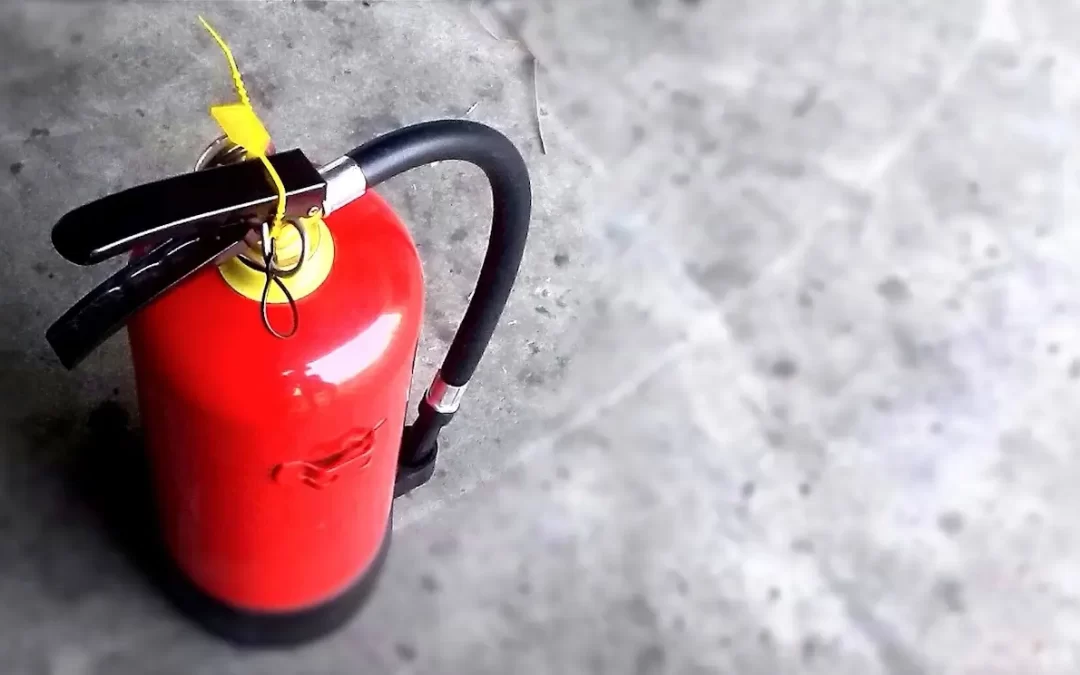House fires are devastating events that can damage your property and threaten your life and those of your loved ones. For homeowners, the knowledge and implementation of fire safety practices is essential. Here are a few tips to help prevent a house fire, keep your family safe, and give you peace of mind.
7 Tips to Prevent a House Fire
Understanding the Causes of House Fires
House fires often start with the usual activities we carry out each day. Commonplace actions can ignite a house fire, whether cooking dinner on the stove, lighting candles for ambiance, drying clothes, or charging electronics.
Prevent a House Fire in the Kitchen
With its busy atmosphere and array of cooking appliances, the kitchen is a hotspot for household fires. Never leave cooking unattended, keep flammable materials away from the stove, and be cautious with oil, which can quickly overheat and ignite. Equip your kitchen with a working fire extinguisher – ensuring it’s the correct type for grease and electrical fires – and routinely check that it’s operational.
Electrical Safety
In modern homes, it’s essential to manage electrical systems and devices diligently. Extension cords are frequent culprits in electrical fire incidents, as they’re susceptible to damage and overloading. Examine cords regularly for signs of wear, and refrain from plugging too many devices into a single outlet, which can lead to overheating. Consult a certified electrician periodically to inspect and maintain your home’s electrical wiring.
Careful Use of Heating Equipment
Cold winter weather increases our reliance on heating sources, boosting the chance of a fire breaking out. Space heaters need clearance; always provide a generous area around these appliances, free from flammable materials like curtains and blankets. Chimneys accumulate flammable creosote buildup over time. At least yearly, hire a chimney sweep to remove obstructions that could lead to fire.
Prevent a House Fire: Use Open Flame Safely
Often, small sparks lead to big problems. A flickering candle in a drafty corridor or an ashtray with smoldering contents can ignite into a blaze. Always monitor open flames and verify they are fully extinguished before leaving the room or going to sleep. If you or a family member smokes, do so outdoors.
Smoke Detectors in the Home
Functioning smoke detectors are indispensable in every home. These devices provide an early warning so you and your family can safely escape a fire. Install smoke alarms on every floor, inside each bedroom, and outside sleeping areas, and test them once a month to ensure they’re in working order. Replace batteries annually, and replace the detector every ten years.
Encourage Fire Safety in the Home
Cultivating fire safety within the household is an invaluable investment. Develop a fire escape plan with your family and practice it at least twice a year. Understanding exit strategies can be lifesaving when seconds count. Teach young children about the dangers of playing with matches and lighters, as curiosity can quickly lead to tragedy.
For homeowners, the greatest defense against house fires is a meticulous approach to fire safety. Regular home maintenance checks, combined with an awareness of the dangers, can dramatically reduce the likelihood of a fire. With these tips, homeowners have advice to help protect their property from fire hazards.
FAQs
What should homeowners do if they experience a kitchen fire while cooking?
In the event of a small kitchen fire, immediately turn off the heat source if safe to do so and cover the flames with a metal lid or baking sheet to smother the fire. Never use water on a grease fire, as it causes the flames to spread.
How can homeowners safely dispose of ashes from fireplaces or wood-burning stoves to prevent a fire?
Allow ashes to cool completely before disposing of them in a metal container with a tight-fitting lid. Place the container outside the home, away from combustible materials, to reduce the fire risk.
What role do fire extinguishers play in preventing house fires, and how should homeowners choose and maintain them?
Fire extinguishers are essential for quickly extinguishing small fires before they spread. Choose fire extinguishers rated for the types of fires likely to occur in their homes, such as Class A, B, or C extinguishers. Regularly inspect and maintain fire extinguishers according to manufacturer guidelines to ensure the devices are in working order when needed.
Are there precautions for using outdoor fire pits or grills to prevent house fires?
Use an outdoor fire pit or grill in an open, well-ventilated area away from structures and combustible materials. Never leave outdoor fires unattended, and fully extinguish the flames before leaving the area or going to sleep.
What immediate steps should homeowners take in a fire to ensure their families’ safety?
If a fire breaks out, alert everyone by shouting “Fire!” to warn your family of the danger. Use predetermined escape routes to evacuate the building quickly and safely. If smoke is present, stay low to the ground, where the air is cleaner, and crawl to the nearest exit. Once outside, move to a designated meeting point a safe distance from the home to gather and verify everyone has escaped safely. Call emergency services (such as 911) from your cell phone or a neighbor’s phone. Under no circumstances should anyone re-enter the home until emergency services have declared it safe.
Home Support Property Inspections provides home inspection services to customers in Maryland and DC. Contact us to schedule an appointment.

